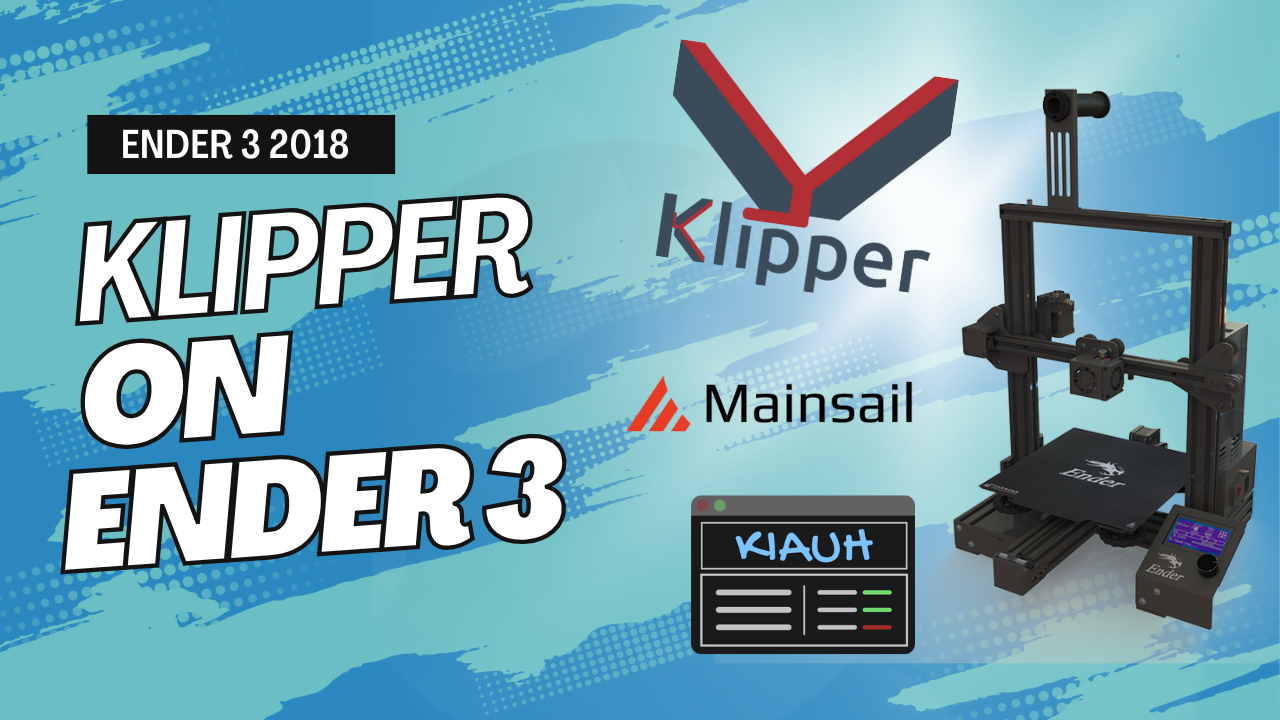In this guide, you’ll learn how to Install Klipper on Ender 3 2018 with KIAU using a Raspberry Pi (or similar device).
Hardware You’ll Need
- Raspberry Pi or Orange Pi
- Micro USB Cable
Software You’ll Need
- PuTTY (SSH client)
- FileZilla (for file transfers)
Disclaimer:
CAUTION: If you still have the stock firwmare you are unable to flash Klipper via USB. You need to flash a bootloader first. Discover How To Install Bootloader on Ender 3 2018 using Orange Pi Zero LTS
If you mount Marlin then you are good to go.
3. Access the Raspberry Pi / Orange Pi via SSH
- Find the Raspberry Pi’s IP Address:
- You can find it via your router’s admin panel or use a network scanner like Angry IP Scanner.
- Connect to the Raspberry Pi via SSH:
- Open a terminal or an SSH client (like PuTTY) and connect using the IP address.
- If you cannot connect, refer to a guide like How to Connect via SSH Using PuTTY.
- Update the Raspberry Pi:
- Run the following commands:
sudo apt update && sudo apt upgrade -y4. Install KIAUH
- Clone the KIAUH Repository (non-root user):
cd ~/
git clone https://github.com/th33xitus/kiauh.git ~/kiauh- Navigate to the KIAUH Directory:
cd ~/kiauh- Start KIAUH:
./kiauh.sh5. Install Klipper, Moonraker, and a Web Interface
In the KIAUH menu:
- Install Klipper to install the Klipper firmware.
- Install Moonraker to set up the Klipper API server.
- Install a Web Interface: Choose either Mainsail or Fluidd for a user-friendly web interface.
After installation, reboot the device:
sudo reboot
6. Compile Klipper Firmware
- After rebooting, reconnect to the device via SSH.
- Open the KIAUH menu:
cd ~/klipper/
make menuconfig- Select the following configurations:
- Microcontroller Architecture: Atmel AVR
- Processor Model: ATmega1284p
- Communication Interface: Serial (on USART0)
- Press Q to exit and Save
- Compile the firmware:
makeThe compiled firmware will be saved as klipper.elf.hex in the /out directory.
7. Flash Klipper Firmware
Determine the serial port to the printer board. Run:
ls /dev/serial/by-id/*
It should show something like:
/dev/serial/by-id/usb-1a86_USB2.0-Serial-if00-port0Flash the firmware in your board:
sudo service klipper stop
make flash FLASH_DEVICE=/dev/serial/by-id/usb-1a86_USB2.0-Serial-if00-port0
sudo service klipper startAwesome! Now your Ender 3 runs klipper!
8. Configure Klipper
- Create the
printer.cfgfile:- Access the web interface (Mainsail or Fluidd) by entering the Raspberry Pi’s IP address in a browser.
- Upload or create a
printer.cfgfile. Use the Ender 3 template from Klipper:
Ender 3 Config File - If you have installed BlTouch, follow this guide: How to Configure BLTouch in Ender 3 2018 using Klipper and Mainsail
- Save and Restart:
- Save the file and restart the Klipper service.
- Test the Connection:
- Run basic commands like
G28(homing) to ensure everything works.
- Run basic commands like
9. Calibration and Optimization
- PID Tuning for Hotend:bashCopiaModifica
PID_CALIBRATE HEATER=extruder TARGET=200 SAVE_CONFIG - Pressure Advance Calibration:
- Improves extrusion consistency:bashCopiaModifica
TUNE_PRESSURE_ADVANCE
- Improves extrusion consistency:bashCopiaModifica
- Input Shaping:
- Reduces vibrations and improves print speed:bashCopiaModifica
SHAPER_CALIBRATE
- Reduces vibrations and improves print speed:bashCopiaModifica
10. Start Printing!
- Upload a test G-code file through the web interface.
- Monitor the print and enjoy the improved performance of your Ender 3 with Klipper!
Conclusion
Using KIAUH, installing Klipper on the Ender 3 becomes a straightforward process. You now have a faster, more precise printer with advanced features like Pressure Advance and Input Shaping.

